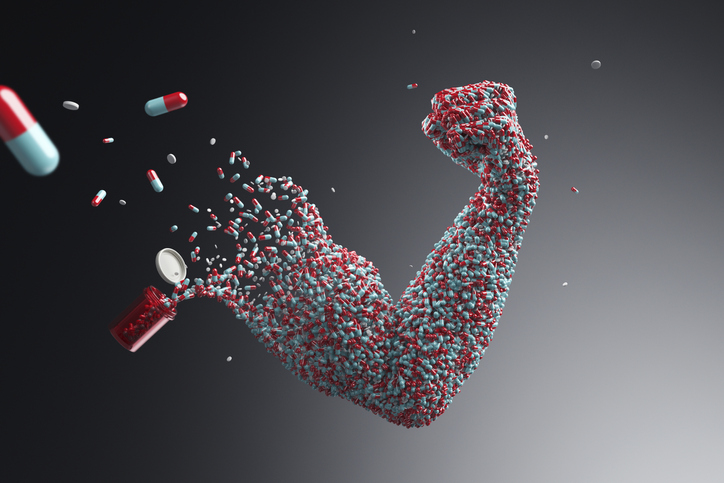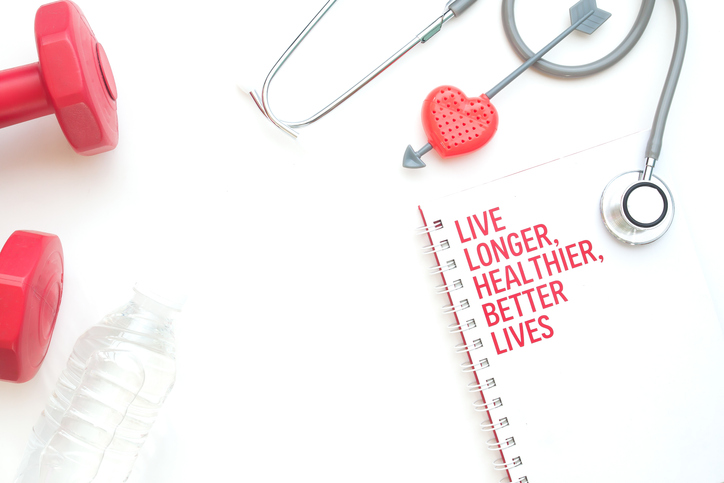Physical Activity May Strengthen Your Immune System

By Joy Stephenson-Laws, J.D., Founder
It has been known for quite some time that sitting too much has been linked to a variety of health problems including obesity, fatty liver disease, diabetes, cardiovascular problems and even premature death. Yes, moving our bodies is essential to our overall health.
(Exercise may even help scare cancer away!)
Lately, because of the threat of COVID-19, I have been especially vocal about how important exercise is as it relates to keeping our immune systems healthy. Even just 30 minutes of brisk walking on a daily basis may improve your immune system compared to otherwise sedentary time.
And according to a recent Medical Xpress report, many healthcare professionals are encouraging physical activity as a powerful method for improving immunity.
“The aim is to guide GPs, nurses and other clinical practitioners to reinforce the benefits of physical activity and structured exercise, particularly in the wake of lockdown measures imposed by the COVID-19 pandemic,” the report reads.

Because many gyms still remain closed across the country, you may be thinking about how to possibly maintain a structured exercise routine? But the truth is, you absolutely can. Set aside time every day to get moving whether it is going for a walk or hike, riding your bike, hula-hooping, playing with a jump rope or doing a home workout online. Running around after your kids in the backyard also counts!
"The key is to keep moving. The more we move, the more our immune cells move too. Being active and exercising triggers immune cells to circulate the body and detect problems, such as viruses. The fitter we are, the stronger our immune response will be against SARS-CoV-2,'' said a doctor referenced in the Medical Xpress report.
Another doctor said, "We could be at the start of a series of long-term changes to our way of life, so it makes absolute sense to build in exercise routines and habits that will keep us healthier overall, and potentially reduce the severity of COVID-19 symptoms if we are infected.”
This is what being proactive is all about!This is yet another example of what being proactive about your health is all about.
It’s about taking action in regards to the things that you can control. Even if you have pain or injuries, you can still find safe ways to remain active. Speak with a competent healthcare professional. And if you are a heart attack survivor, it may be especially important for you to keep moving.
And yes, we need to fuel your body for exercise.
We all need proper ‘fuel’ to be physically fit and perform well at whatever activity we choose.
To put it simply, we need macronutrients (which are necessary in larger quantities) and micronutrients (necessary in smaller quantities). Both are equally important. Macronutrients include protein, carbohydrates, fats and water. Micronutrients include vitamins and minerals. All together, these are six essential nutrients we need to live and be physically and mentally fit.
To read more about how you can eat well for exercise, check out this older pH Labs blog. What’s great about this is that eating for exercise also coincides with how to eat to keep your immune system in top shape.
For additional tips on how you can keep your immune system in top shape, read here. (Take this quiz and find out how healthy your immune system is).
Remember that your immune system is your first line of defense – and with viruses, including the coronavirus, it is currently your only line of defense (other than wearing face masks and social distancing) – so be sure to keep it as strong as possible to better protect your health.
As always, it is highly recommended to take routine nutrient tests in order to identify any nutritional imbalances or deficiencies. If the test reveals, you are not nutritionally balanced, a competent healthcare professional can work with you on making the necessary dietary changes and recommend quality supplements if necessary.
Enjoy your healthy life!
Disclaimer: This article is not intended to provide medical advice. Please consult with your doctor or another competent healthcare practitioner to get specific medical advice for your situation.
The pH professional health care team includes recognized experts from a variety of health care and related disciplines, including physicians, attorneys, nutritionists, nurses and certified fitness instructors. This team also includes the members of the pH Medical Advisory Board, which constantly monitors all pH programs, products and services. To learn more about the pH Medical Advisory Board, click here.







